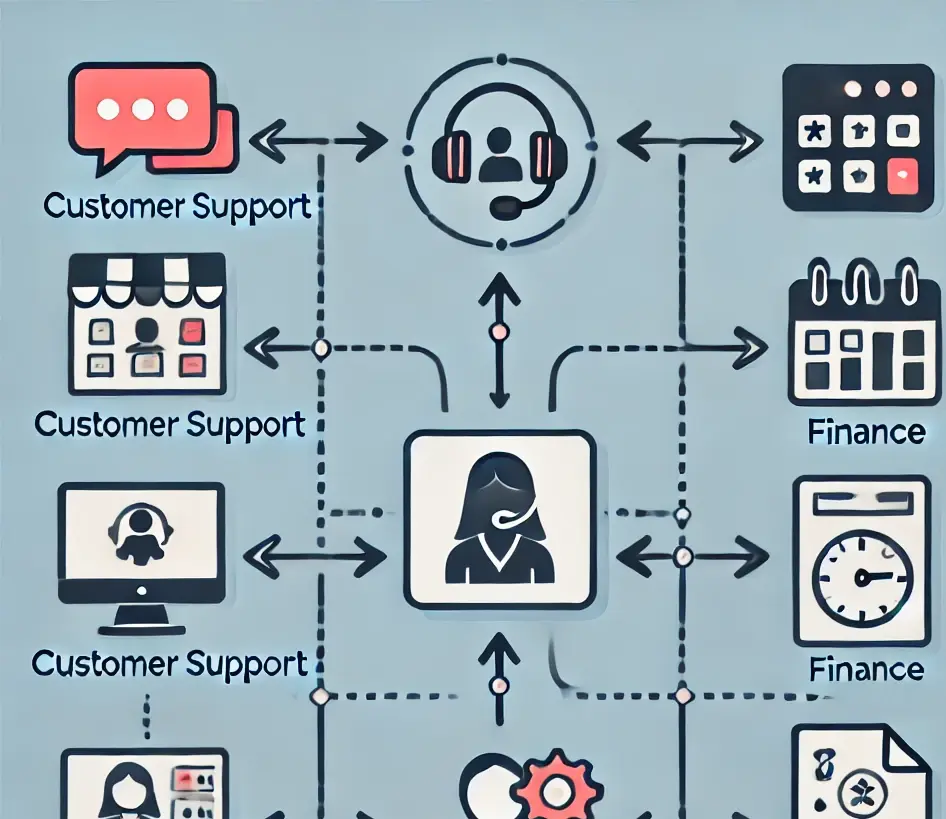Process automation helps businesses save time, minimize errors, and improve how they work. Using technology to handle repetitive tasks allows teams to focus on more complex challenges.
This guide explains the different types of workflows, how to set up a project workflow, and why it's essential for your business. Let’s dive in and see how you can create a workflow that makes everyday tasks simpler.
Why It Matters![]()
Using software to manage routine activities can transform how businesses operate. Automating processes speeds up the sequence of tasks, reduces mistakes, and improves productivity.
A good workflow management system can make approvals and document sharing happen faster. This ensures that all team members remain aligned with the project’s progress.
Without the need for human intervention in routine tasks, businesses can reallocate their resources toward more strategic projects. This makes the entire team more effective and focused on tasks that require creativity and decision-making.
To see examples of efficient processes, check out our post on How Smart Tools Improve Business Operations.
Yes, But
Not every process should run without human intervention. Some tasks, like resolving unique customer complaints, still require the empathy and creativity that only humans can provide. That’s why it's crucial to carefully plan which processes to automate.
For example, financial reporting can improve with workflow management software. However, dealing with a sensitive client issue may require a more personal touch.
Choosing the right components of a workflow for automation is key. Focus on repetitive, predictable processes that are time-consuming but don’t require deep thinking. Think about using artificial intelligence for tasks like sorting emails or organizing data. However, maintain personal connections where they are most important.
Catch Up Quick:

Here are some key processes that can be automated and streamlined using workflow management systems:
1. Customer Support:
A project workflow involving chatbots can address common questions around the clock. This allows team members to focus on more complex issues. It also ensures a smoother process for basic customer inquiries. Learn more about how it helps here: Customer Support Automation.
2. Finance:
Automating tasks like payroll, billing, and expense tracking means fewer mistakes and quicker results. This helps finance teams focus on planning and reduces bottlenecks. Check out our guide on Financial Automation.
3. HR Management:
Automating workflows managing employee onboarding and performance reviews makes HR more efficient. This helps team members focus on improving the workplace experience and creating a positive environment. Read more about HR Automation.
4. Marketing:
Use workflow management software to schedule social media posts, email campaigns, and customer follow-ups. This allows marketers to spend more time on creative strategies. Explore more on Marketing Automation.
5. Operations:
Streamline order processing and inventory management using flow chart diagrams and business process modeling. It ensures tasks move smoothly from one phase to the next without delays. Learn more about Improving Operations.
What’s Next:
Process automation will continue to shape the future of businesses. Emerging technologies like machine learning are making it easier to automate a wider range of tasks. Starting now can give your business an advantage. It helps you stay ahead of industry trends and adapt to new challenges.
At Yellow Basket, we provide workflow management systems tailored to your needs. We help businesses create a workflow that is efficient and easy to manage. This lets you play an important role in your industry. Visit our services page to see how we can support your journey toward better processes.
Looking to achieve greater progress? Arrange a meeting with us today. Discover how our tailored solutions can enhance your work process.